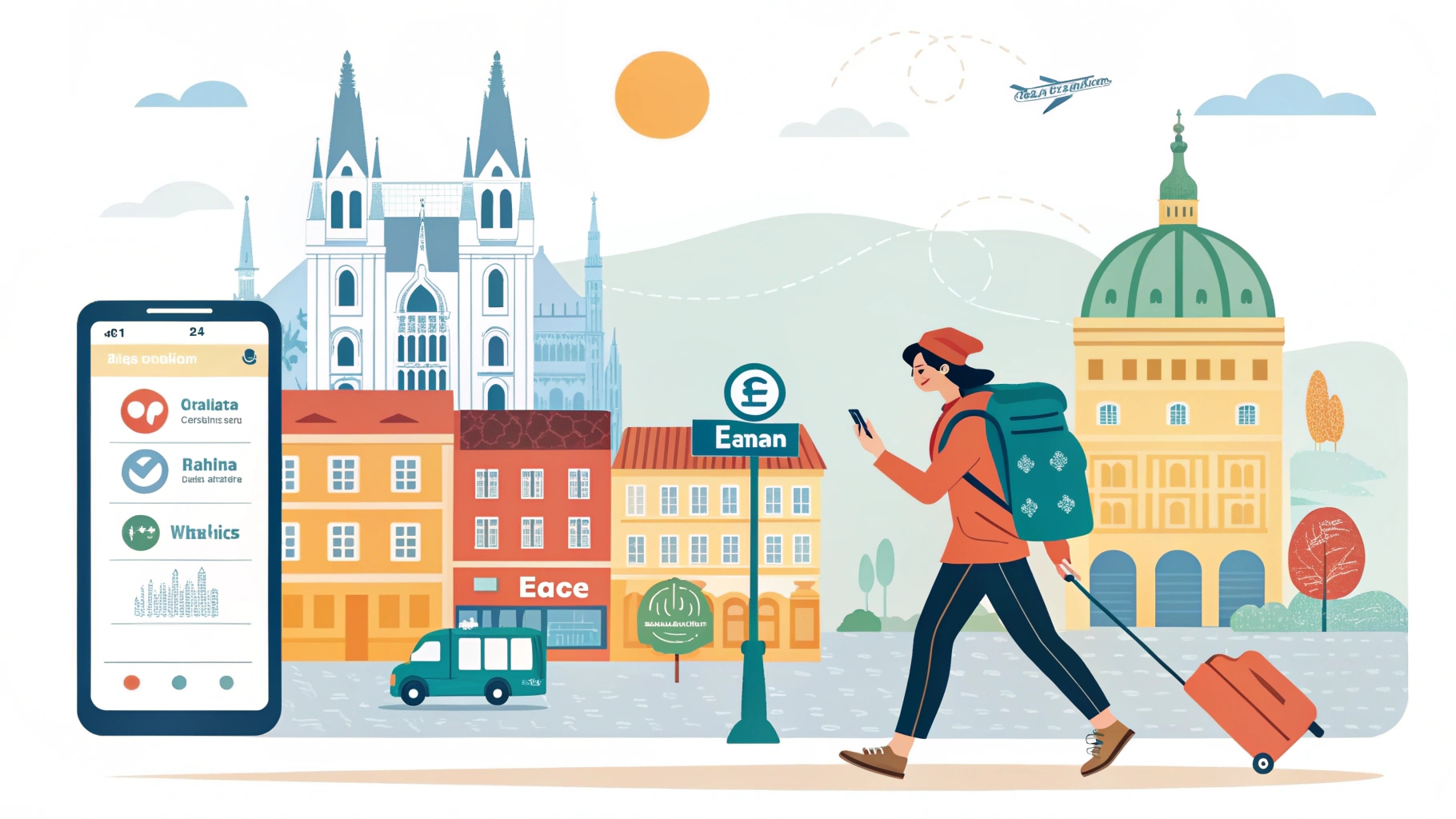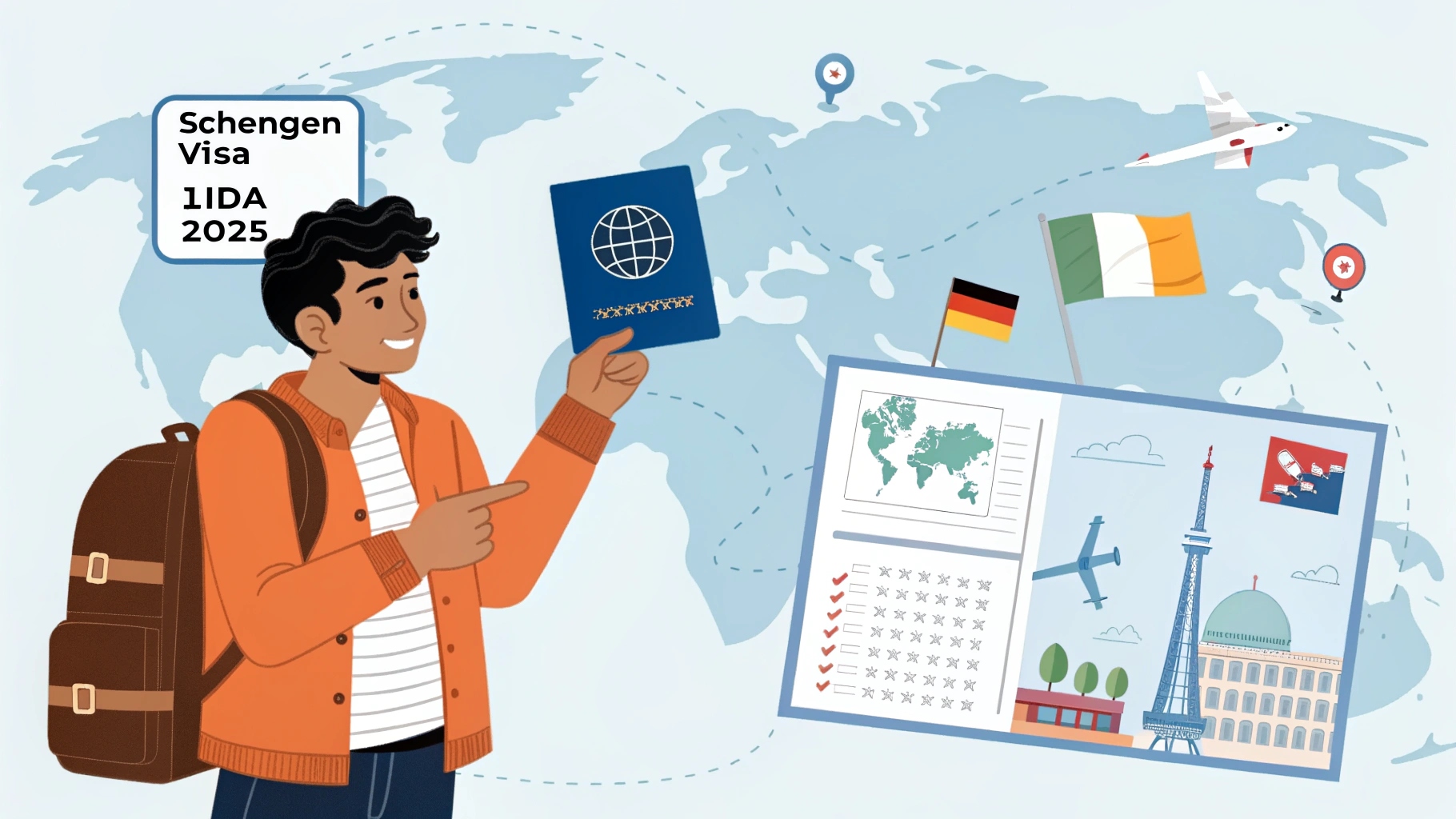Traveling solo in Europe is a rewarding experience that combines freedom, self-discovery, and unforgettable adventures. However, Europe is often seen as expensive — especially for solo travelers who don’t have someone to split costs with. Thankfully, with the right planning and smart decisions, you can explore the continent affordably. This guide covers the best budget travel tips for solo travelers in Europe to help you save money and maximize your experience.
- Pick Budget-Friendly Countries First
- Travel During Shoulder Seasons
- Use Budget Airlines and Ground Transport
- Stay in Hostels or Shared Accommodation
- Eat Local and Cook When Possible
- Use Free Tours and Museum Days
- Use Public Transport and City Cards
- Download Offline Maps and Travel Apps
- Pack Light and Smart
- Make Friends Along the Way
- Stay Safe and Insured
- Be Flexible and Open-Minded
- FAQs
- Is Europe safe for solo travelers on a budget?
- How much should I budget for solo travel in Europe per day?
- What is the cheapest way to get around Europe?
- Do I need a Schengen visa to visit Europe?
- Conclusion
Pick Budget-Friendly Countries First
Not every European country is expensive. Western Europe (like Switzerland, France, or Norway) can be costly, but Eastern and Southern European countries like Poland, Romania, Bulgaria, Portugal, and Greece offer incredible experiences at half the price. Accommodation, food, and transportation are much cheaper in these regions, making them perfect for solo travelers on a tight budget.
Travel During Shoulder Seasons
The peak summer months (June to August) are not only crowded but also expensive. Traveling in spring (April–May) or early autumn (September–October) can help you save significantly on flights, hotels, and tours. Plus, the weather is usually pleasant and the crowds are thinner.
Use Budget Airlines and Ground Transport
Europe is known for its budget airlines like Ryanair, Wizz Air, and easyJet. Book tickets in advance and travel light to avoid baggage fees. For overland travel, options like FlixBus, BlaBlaCar, and low-cost train tickets can be much cheaper. Use travel comparison apps like Omio or Rome2Rio to find the best options for your route.
Stay in Hostels or Shared Accommodation
Solo travelers benefit greatly from hostels. They’re affordable, social, and often located in city centers. Use apps like Hostelworld, Booking.com, or Couchsurfing to find safe, budget-friendly stays. Many hostels offer free walking tours, breakfast, and kitchens to cook your own meals — helping you save even more.
Eat Local and Cook When Possible
Dining in tourist zones can quickly drain your budget. Instead, explore local bakeries, food markets, or street vendors. You’ll eat better and cheaper. Also, shop from supermarkets and cook simple meals at your hostel or Airbnb. It’s a great way to experience local ingredients and reduce daily food expenses.
Use Free Tours and Museum Days
Most European cities offer free walking tours run by local guides — you just tip what you can. Additionally, many museums and attractions have free entry days or discounted tickets for students and youth. Do a quick search for “free things to do in [city name]” before you visit.
Use Public Transport and City Cards
Instead of taxis, use public transportation like buses, trams, and metros. They’re cheap, reliable, and often cover the entire city. Many cities offer tourist transport passes or city cards that provide unlimited travel plus discounts on attractions. Examples include the Berlin WelcomeCard, Lisbon Card, or Budapest Card.
Download Offline Maps and Travel Apps
Staying organized helps you avoid unnecessary spending. Use offline maps (Google Maps, Maps.me) and travel apps like Rome2Rio, Hostelworld, Omio, and XE Currency. These tools help you find cheaper options, stay safe, and save time.
Pack Light and Smart
Traveling with just a carry-on or backpack not only saves money on airline baggage fees but also makes it easier to move between cities. Pack versatile clothes, a microfiber towel, a refillable water bottle, and travel-sized toiletries. The lighter you travel, the freer (and cheaper) your journey becomes.
Make Friends Along the Way
Traveling solo doesn’t mean being alone. Hostels, walking tours, cafes, and online communities (like Facebook travel groups or Couchsurfing events) make it easy to meet like-minded travelers. Sharing meals, transport, or even short-term travel plans can help split costs and make the trip more fun.
Stay Safe and Insured
Budget travel shouldn’t compromise your safety. Always get travel insurance to cover emergencies, cancellations, or medical issues. Carry digital and physical copies of your important documents. Stay alert in crowded places and always keep an emergency fund or backup card.
Be Flexible and Open-Minded
One of the best budget travel strategies is to stay flexible. Sometimes, changing your travel date by a day or taking a bus instead of a train can save you a lot. Keep an open mind about where you stay, eat, and explore — hidden gems are often more affordable than tourist hot-spots.
FAQs
Is Europe safe for solo travelers on a budget?
Yes, Europe is generally safe for solo travelers, including women. Countries like Portugal, Slovenia, and Austria are known for their safety. Still, basic precautions are important no matter where you go.
How much should I budget for solo travel in Europe per day?
On a tight budget, €40–€70 per day is doable in affordable countries, covering accommodation, meals, and local transport. Western Europe may cost more, but you can save by staying in hostels and cooking your own food.
What is the cheapest way to get around Europe?
Budget airlines, FlixBus, BlaBlaCar, and early-bird train tickets are great for long distances. Inside cities, use local public transport or walk. Avoid taxis unless absolutely necessary.
Do I need a Schengen visa to visit Europe?
If you’re from outside the EU, yes. A Schengen visa allows travel in 26 European countries for up to 90 days. Make sure your visa covers all the countries on your itinerary.
Conclusion
Solo travel in Europe doesn’t have to be expensive. With the right planning, flexible mindset, and use of digital tools, you can explore beautiful cities, meet amazing people, and enjoy unforgettable moments — all on a reasonable budget. Remember, it’s not about spending more, but about spending smart. So pack light, plan well, and let your solo European adventure begin.










